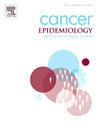Interleukin gene polymorphisms (IL1B, IL6, IL10, IL16, IL28B) increase prostate cancer risk and associate with aggressive disease features in Iraqi men: A case-control study
IF 2.3
3区 医学
Q3 ONCOLOGY
引用次数: 0
Abstract
Background
Prostate cancer is one of the most frequently diagnosed cancers in men globally. Chronic inflammation is a major contributor to the development of cancer, with interleukins as key players in regulating inflammatory pathways. This study aims to explore the association between IL1, IL6, IL10, IL16, and IL28 gene polymorphisms and the risk of prostate cancer in the Iraqi population.
Methods
This case-control study included 290 histologically confirmed prostate cancer patients and 350 age-matched healthy controls recruited from Al-Diwaniyah Teaching Hospital between February 2024 and December 2024. Genotyping for IL1B-511 C>T (rs16944), IL6–174 G>C (rs1800795), IL10–1082 A>G (rs1800896), IL16–295 T > C (rs4778889), and IL28B C>T (rs12979860) polymorphisms was performed using tetra-primer amplification refractory mutation system-polymerase chain reaction (T-ARMS-PCR). Statistical analyses included odds ratios (ORs) with 95 % confidence intervals (CIs) and haplotype analysis.
Results
Significant associations with prostate cancer risk were observed for the IL1B-511 TT genotype (OR=1.76, 95 % CI: 1.18–2.63, p = 0.006), IL6–174 GG genotype (OR=1.66, 95 % CI: 1.12–2.45, p = 0.011), IL10–1082 GG genotype (OR=1.82, 95 % CI: 1.20–2.76, p = 0.005), IL16–295 CC genotype (OR=1.88, 95 % CI: 1.27–2.79, p = 0.002), and IL28B TT genotype (OR=1.79, 95 % CI: 1.22–2.63, p = 0.003). Haplotype analysis revealed that the TGGCT haplotype was associated with a 2.35-fold increased risk of prostate cancer (OR=2.35, 95 % CI: 1.51–3.66, p < 0.001). Stratified analyses demonstrated stronger associations between these polymorphisms and aggressive disease characteristics, including higher Gleason scores, advanced tumor stages, and elevated PSA levels.
Conclusion
In this study, we identified proliferative inflammatory lesions of the prostate in Iraqi patients, suggesting that polymorphisms in the IL1B, IL6, IL10, IL16, and IL28B genes significantly increased prostate cancer risk and exacerbated aggressive disease features. These findings suggest the key role of these gene variants in modulating inflammatory and immune responses in the prostate carcinogenesis. Additional research is necessary to investigate these findings in other populations and examine the possibility of using them as risk assessment and personalized treatment biomarkers.
白细胞介素基因多态性(IL1B、IL6、IL10、IL16、IL28B)增加伊拉克男性前列腺癌风险并与侵袭性疾病特征相关:一项病例对照研究
前列腺癌是全球男性中最常见的癌症之一。慢性炎症是癌症发展的主要因素,白细胞介素在调节炎症途径中起着关键作用。本研究旨在探讨IL1、IL6、IL10、IL16和IL28基因多态性与伊拉克人群前列腺癌风险之间的关系。方法本病例对照研究纳入2024年2月至2024年12月从Al-Diwaniyah教学医院招募的290例组织学证实的前列腺癌患者和350例年龄匹配的健康对照。采用四引物扩增法对IL1B-511 C>;T (rs16944)、IL6-174 G>C (rs1800795)、IL10-1082 A>G (rs1800896)、IL16-295 T >; C (rs4778889)和IL28B C>;T (rs12979860)多态性进行基因分型。统计分析包括95% %置信区间(ci)的比值比(ORs)和单倍型分析。ResultsSignificant协会与前列腺癌风险观察il1b - 511 TT基因型(或= 1.76,95 % CI: 1.18 - -2.63, p = 0.006),白细胞介素6 - 174 GG基因型(或= 1.66,95 % CI: 1.12 - -2.45, p = 0.011),il10 - 1082 GG基因型(或= 1.82,95 % CI: 1.20 - -2.76, p = 0.005),il16 - 295 CC基因型(或= 1.88,95 % CI: 1.27 - -2.79, p = 0.002),和IL28B TT基因型(或= 1.79,95 % CI: 1.22 - -2.63, p = 0.003)。单倍型分析显示,TGGCT单倍型与前列腺癌风险增加2.35倍相关(OR=2.35, 95 % CI: 1.51-3.66, p <; 0.001)。分层分析表明,这些多态性与侵袭性疾病特征之间存在更强的关联,包括较高的Gleason评分、晚期肿瘤分期和PSA水平升高。在本研究中,我们在伊拉克患者中发现了前列腺增生性炎症病变,表明IL1B、IL6、IL10、IL16和IL28B基因的多态性显著增加了前列腺癌的风险,并加剧了侵袭性疾病的特征。这些发现提示了这些基因变异在前列腺癌发生过程中调节炎症和免疫反应的关键作用。需要进一步的研究在其他人群中调查这些发现,并检查将其用作风险评估和个性化治疗生物标志物的可能性。
本文章由计算机程序翻译,如有差异,请以英文原文为准。
求助全文
约1分钟内获得全文
求助全文
来源期刊

Cancer Epidemiology
医学-肿瘤学
CiteScore
4.50
自引率
3.80%
发文量
200
审稿时长
39 days
期刊介绍:
Cancer Epidemiology is dedicated to increasing understanding about cancer causes, prevention and control. The scope of the journal embraces all aspects of cancer epidemiology including:
• Descriptive epidemiology
• Studies of risk factors for disease initiation, development and prognosis
• Screening and early detection
• Prevention and control
• Methodological issues
The journal publishes original research articles (full length and short reports), systematic reviews and meta-analyses, editorials, commentaries and letters to the editor commenting on previously published research.
 求助内容:
求助内容: 应助结果提醒方式:
应助结果提醒方式:


